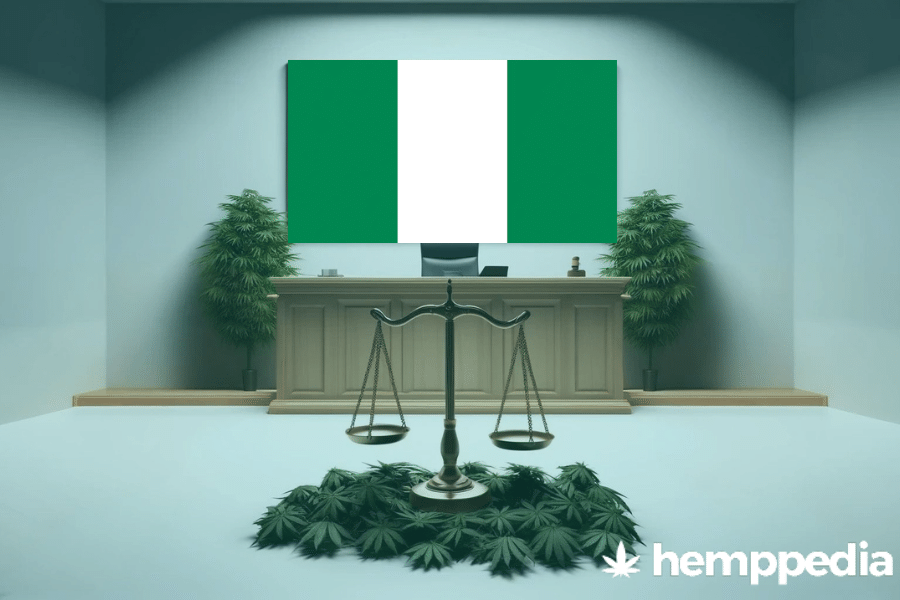TL;DR
The legality of Cannabis in Nigeria is quite clear: both THC and CBD are illegal for recreational and medical use.
| Recreational Use | Medical Use | |
|---|---|---|
| THC | Illegal | Illegal |
| CBD | Illegal | Illegal |
Introduction
The global relationship with cannabis is complex and rapidly changing. In contrast to the wave of cannabis legalization or decriminalization seen in other parts of the globe, Nigeria maintains strict laws against its use. Understanding the legislation behind the cannabis phenomenon is crucial to navigate this evolving landscape.
Overview of Cannabis Legislation
Legalization refers to the removal of laws criminalizing cannabis use. Decriminalization, on the other hand, involves reducing penalties or enforcing them less strictly. Medical use is when cannabis is used to treat certain health conditions, whereas recreational use involves personal enjoyment.
Despite the trend toward acceptance, the stance on cannabis significantly varies among countries and even among states within a country.
State-Specific Legal Details
Legal Status
Both THC and CBD forms of cannabis are illegal in Nigeria for medical and recreational use. The Nigerian Drug Law Enforcement Agency (NDLEA) enforces this ban.
Historical Context
The ban on cannabis in Nigeria has been in effect since the 1935 Dangerous Drugs Act, and the stance has remained punitive. Despite the global trends, Nigeria hasn’t shown a significant shift in their cannabis legislation so far.
Possession and Use
All cannabis possession is considered illegal in Nigeria. The enforcement of these laws has been consistently strict, with hefty penalties tied to cannabis possession, and consumption, regardless of the amount.
Cultivation and Distribution
Growing cannabis, personally or for commercial distribution, is strictly prohibited by law in Nigeria. Despite this, Nigeria is considered one of the world’s largest producers of cannabis.
Enforcement and Penalties
Penalties can be severe, including imprisonment terms ranging from 15 years to life for drug trafficking offenses. Violations of possession, sale, or cultivation laws can also result in large fines.
Medical Cannabis
There are no provisions for the legal prescription or consumption of medical cannabis in Nigeria.
Social and Economic Impact
While the exact social and economic consequences are hard to gauge, the UNODC suggests that the current prohibitive policies have boosted a massive illicit trade, leading to increasing levels of violence and corruption.
Comparative Analysis
When compared to other West African countries such as Ghana, which has decriminalized the use and possession of cannabis, Nigeria’s law seems exceptionally strict.
Future Outlook and Ongoing Debates
While there have been discussions about the possible economic benefits of legalizing cannabis in Nigeria, these are currently mere speculations, and there are no indications that the legislation will change in the near future.
Conclusion
In conclusion, the legal status of cannabis in Nigeria remains resolute in its prohibition, both for recreational and medical use. It remains to be seen whether Nigeria will shift its approach to align with the global trend toward the legalization and decriminalization of cannabis.





